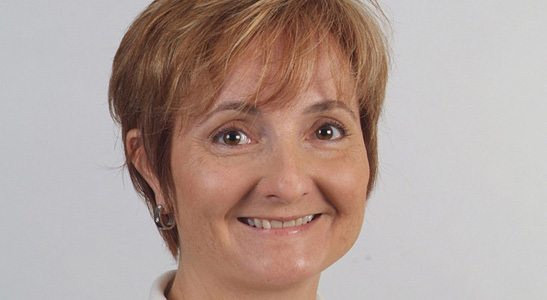Amy Hillman, a renowned management professor and noted researcher, replaced Robert Mittelstaedt as dean of Arizona State University’s W.P. Carey School of Business in March and became the school’s first female dean.
Az Business sat down with the leader of the W. P. Carey School, ranked in the top 30 among the best graduate business schools in the nation by U.S. News & World Report, to talk about her goals as dean and how her background as a researcher impacts her leadership.
Az Business: What is your biggest challenge as dean of the W. P. Carey School of Business?
Amy Hillman: Keeping the school nimble as an organization. Technology is playing a transformative role in higher education. The skills and expertise needed to succeed in an organization change as a result. We have to stay close to our corporate partners to make sure we stay on the leading edge of business education.
AB: How has the transition from second in command to dean been so far?
AH: Great. In the second-in-command position, I focused internally. We have amazing students, faculty and staff, and we work with some great partners within ASU, outside of the business school. Now, I also get to spend time with alumni, corporate partners and donors. In addition, I interact a lot more with other business-school deans. It’s a full circle.
AB: What are the W. P. Carey School’s strengths?
AH: We have hard-working students, dedicated staff, a supportive community, and a really desirable and unusual faculty combination. It’s not that hard to find good teachers or good researchers, but our faculty members are both, and that’s much more difficult to achieve. They are world-class researchers on the cutting edge of new knowledge in their fields, as well as excellent teachers. Therefore, what they discover one day, they teach in class the next. Add to this, they care about the students’ success in school and future careers. We have a dynamite combination. That’s why we’re currently ranked Top 30 in the nation by U.S. News & World Report for all of our marquee programs — undergraduate business, full-time MBA, part-time MBA and online MBA.
AB: What makes you an effective dean for the W. P. Carey School?
AH: I love my work. I value relationships, but also performance. It also doesn’t hurt to be a management professor with real-world managerial experience. We have a lot of stakeholders to manage.
AB: How has your background prepared you to educate the entrepreneurs and business leaders of the future?
AH: In addition to my decades of work as a management professor and then executive dean, I also originally got my MBA because I needed skills to be a better manager in retail, before I ever went into academia. What I learned one night in my classes, I would apply the next day on the job. I also come from a family of entrepreneurs, so innovation and practicality loom large. I think this helps me stay focused on what we need to do to advance the practice of business.
AB: What are your goals as dean of the W. P. Carey School of Business?
AH: I’d like to build stronger — deeper and broader — corporate relations, increase lifelong value to our alumni, make our student experience a personal one, and make working at the W. P. Carey School of Business rewarding and fun. I’d also like to make sure the W. P. Carey School is no longer a “best-kept secret.” More people need to know all we do and how well we do it.
AB: What’s been the biggest change in education since you entered academia?
AH: I’d say one of the biggest changes to education as a whole — not specifically to business education — is the questioning of the value of education. This is unimaginable in developing nations like China. I was recently there with our executive MBA students in Shanghai. One of our speakers at an event was Nobel Laureate Ed Prescott, a W. P. Carey School of Business faculty member. Young kids wanted to have their pictures taken with him for his intellectual achievement. Sadly, I see too many people here in the United States who believe education isn’t the main driver of economic achievement.
AB: How has your background as a researcher impacted the way you educate the business leaders of the future?
AH: As a researcher, I’m strongly influenced by data, not anecdotes. So let’s analyze what’s happening before we jump to conclusions based on our personal observations. That said, most business research questions are big, complex ones without “one right answer,” so we need to train our students to look for patterns among data, but at the same time to embrace uncertainty. Make the best decisions with incomplete information. That’s the real world.




